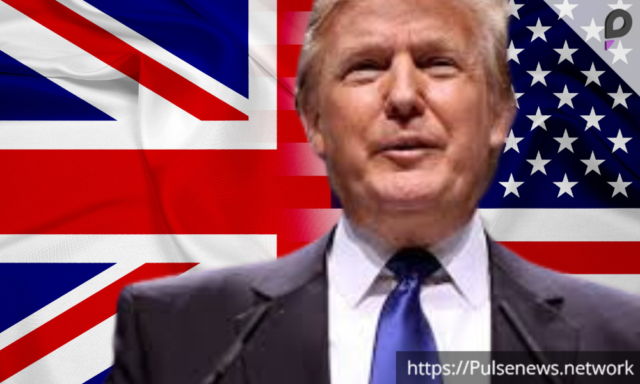The UK should be exempt from the tariffs President Trump threatens to impose on exports to the US. Business Secretary Jonathan Reynolds emphasized this in a recent BBC interview.
Trade Balance Concerns
Reynolds pointed out that the US does not have a goods trade deficit with the UK. A trade deficit occurs when a country imports more goods and services from other countries than it exports, resulting in a negative balance of trade that can impact the economy by increasing national debt and affecting currency value. This distinction is vital in discussions about tariffs.
Trump has intensified his threats to impose substantial tariffs on countries exporting goods to the US. Reynolds believes this provides a basis for engagement with the US administration.
Global Economic Implications
World leaders are worried about the potential for higher tariffs on US imports. Such tariffs could significantly raise costs for companies selling goods in the US, the world’s largest economy.
During the World Economic Forum, Trump warned global executives that they must either produce goods in the US or face tariffs. These tariffs could amount to hundreds of billions or even trillions of dollars.
The UK’s Manufacturing Position
Reynolds stated that the US does not have a trade deficit with the UK in manufactured goods. He underscored that the UK’s economy is primarily services-based, highlighting the importance of this point in discussions.
The UK government is prepared to argue for exclusion from the proposed tariffs. Reynolds believes this logic supports the UK’s case for negotiations.
Trump’s Economic Strategy
Tariffs are a crucial aspect of Trump’s economic vision. He views them as a means to stimulate the US economy, protect jobs, and generate tax revenue. Additionally, he uses tariffs as leverage for other policy goals.
Trump is contemplating a 10% tax on imports from China, citing fentanyl trafficking concerns. He has also threatened 25% tariffs on Canada and Mexico, linking this to immigration issues and fentanyl.
Recently, Trump suggested he would prefer not to impose tariffs, indicating a possible trade deal could be forthcoming.
UK’s Trade Strategy
Reynolds revealed that the UK is open to aligning with EU rules for food and agricultural products. This alignment could facilitate frictionless access to European markets.
He stated that such an agreement, which would reduce trade barriers, would not violate the government’s red lines. The UK government aims to navigate trade without reopening debates about customs unions or single markets.
EU Cooperation Possibilities
EU Trade Commissioner Maros Sefcovic recently indicated that a new agreement is possible. This agreement could involve dynamic alignment on standards and enhance pan-European customs cooperation.
Reynolds noted that Sefcovic’s remarks align with the UK government’s “twin-track strategy” on trade. He stressed the importance of improving trade terms with the EU while pursuing global trade relationships.
Political Reactions and Future Negotiations
Labour’s election manifesto focused on reducing Brexit-related barriers for food exports to the EU. However, the extent of such agreements remains unclear. Discussions could conclude in the coming weeks, but firm decisions are still pending.
The Conservative Party has expressed frustration over the prospect of a new UK-EU trade deal. Shadow Foreign Secretary Dame Priti Patel accused the government of yielding to the EU.
In contrast, the Liberal Democrats criticized the government for not doing enough to facilitate smoother trade with the EU. As negotiations continue, the future of UK trade relations remains uncertain.











